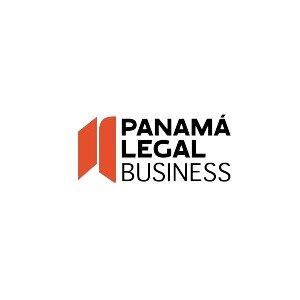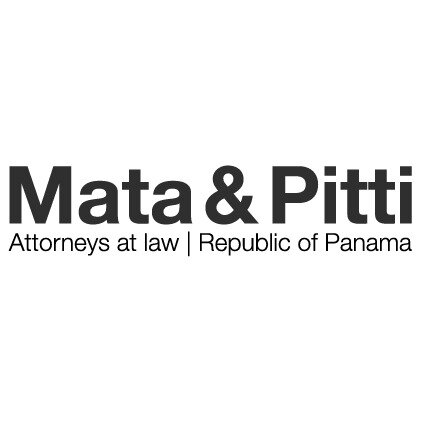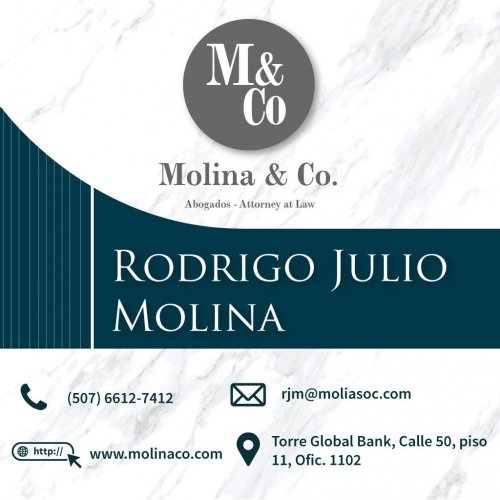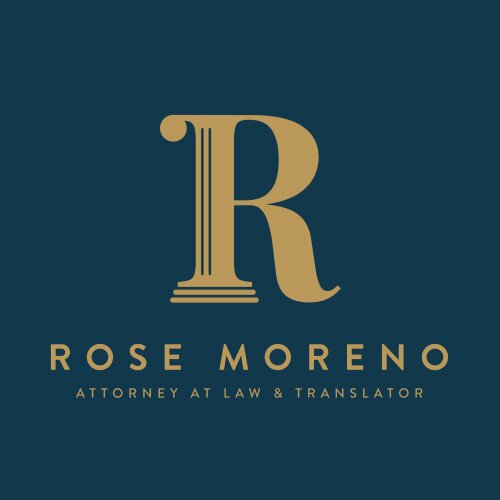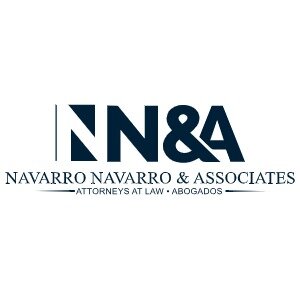Best Copyright Lawyers in Panama
Share your needs with us, get contacted by law firms.
Free. Takes 2 min.
Or refine your search by selecting a city:
List of the best lawyers in Panama
About Copyright Law in Panama
Copyright law in Panama is governed by Law No. 15 of 1994, also known as the Copyright and Neighboring Rights Law. This legislation is designed to protect the rights of authors, creators, and performers by granting them exclusive rights to their works. Panama is also a member of major international copyright treaties, including the Berne Convention, which harmonizes the country's laws with global standards. Copyright in Panama spans literary, artistic, and scientific works, extending automatic protection to original works upon their creation.
Why You May Need a Lawyer
There are several situations where you may need legal assistance in the field of copyright. Common scenarios include negotiating licensing agreements, enforcing your rights against unauthorized use of your work, or defending against infringement claims. Additionally, creators often seek legal advice to ensure proper registration of their works and to fully understand their rights and obligations under Panamanian law. A lawyer can also assist in international matters, ensuring your works are protected abroad, and aid in resolving disputes through mediation or litigation.
Local Laws Overview
Panama's copyright law protects a wide range of works, including books, music, films, software, and visual art. It provides authors exclusive rights, such as the right to reproduce, distribute, perform, and display their works. Moral rights, such as the right to attribution and integrity, are also recognized. Protection generally lasts for the life of the author plus 70 years. Infringement penalties can include fines and cessation of the infringing activity. Enforcement is essential in Panama, where unauthorized use can be pervasive, making legal advice crucial for enforcement of these rights.
Frequently Asked Questions
What works are protected by copyright in Panama?
Copyright protection in Panama covers literary, artistic, and scientific works, including books, music, films, software, paintings, and architectural designs, among others.
How long does copyright protection last in Panama?
In general, copyright protection lasts for the life of the author plus 70 years after their death for most works.
Do I have to register my work to gain copyright protection in Panama?
No, copyright protection is automatic upon the creation of the work. However, registration can provide additional legal advantages, such as serving as evidence in infringement cases.
What constitutes copyright infringement in Panama?
Copyright infringement occurs when a work is used, reproduced, distributed, performed, or displayed without the consent of the copyright holder, infringing on their exclusive rights.
How can I enforce my copyright in Panama?
You can enforce your copyright by seeking legal assistance to issue cease-and-desist letters, pursue negotiations, or take legal action through the courts if necessary.
Are there exceptions to copyright in Panama?
Yes, Panama's law allows for certain exceptions, such as fair use for educational, commentary, or research purposes, provided it does not significantly impact the market value of the original work.
Can I use copyrighted material for educational purposes in Panama?
While there is an exception for educational purposes, it is limited. Use must be fair and not exceed what is necessary for the educational goal. Consulting a lawyer can help interpret specific cases.
What rights do authors have over their works in Panama?
Authors have exclusive economic rights to reproduce, distribute, display, and create derivative works, as well as moral rights relating to the attribution and integrity of their work.
What should I do if I receive a copyright infringement notice in Panama?
If you receive a notice, it is crucial to consult a lawyer for guidance on how to respond. They can advise on your defenses and help you negotiate or challenge the claim.
Can foreign works be protected by copyright in Panama?
Yes, Panama is a member of international agreements, such as the Berne Convention, which provides protection to foreign works from member countries under the same conditions as local works.
Additional Resources
For further information on copyright in Panama, you may consider reaching out to the following resources:
- National Copyright Directorate of Panama: The official body overseeing copyright matters.
- World Intellectual Property Organization (WIPO): Offers information on international treaties and resources.
- Chambers of Commerce: May provide legal resources and references to specialized copyright lawyers.
- Local universities: Often host seminars and workshops on intellectual property rights.
Next Steps
If you require legal assistance with copyright issues in Panama, the next steps usually involve:
- Identifying the specific legal issue or situation you are facing.
- Contacting a lawyer specializing in copyright law to discuss your case.
- Gathering all relevant documents and evidence related to your situation.
- Engaging with your lawyer to develop a legal strategy, whether it involves negotiation, mediation, or litigation.
Taking these steps will help ensure that your rights are protected and that you receive the expert guidance necessary to navigate the complexities of copyright law in Panama.
Lawzana helps you find the best lawyers and law firms in Panama through a curated and pre-screened list of qualified legal professionals. Our platform offers rankings and detailed profiles of attorneys and law firms, allowing you to compare based on practice areas, including Copyright, experience, and client feedback.
Each profile includes a description of the firm's areas of practice, client reviews, team members and partners, year of establishment, spoken languages, office locations, contact information, social media presence, and any published articles or resources. Most firms on our platform speak English and are experienced in both local and international legal matters.
Get a quote from top-rated law firms in Panama — quickly, securely, and without unnecessary hassle.
Disclaimer:
The information provided on this page is for general informational purposes only and does not constitute legal advice. While we strive to ensure the accuracy and relevance of the content, legal information may change over time, and interpretations of the law can vary. You should always consult with a qualified legal professional for advice specific to your situation.
We disclaim all liability for actions taken or not taken based on the content of this page. If you believe any information is incorrect or outdated, please contact us, and we will review and update it where appropriate.
Browse copyright law firms by city in Panama
Refine your search by selecting a city.



